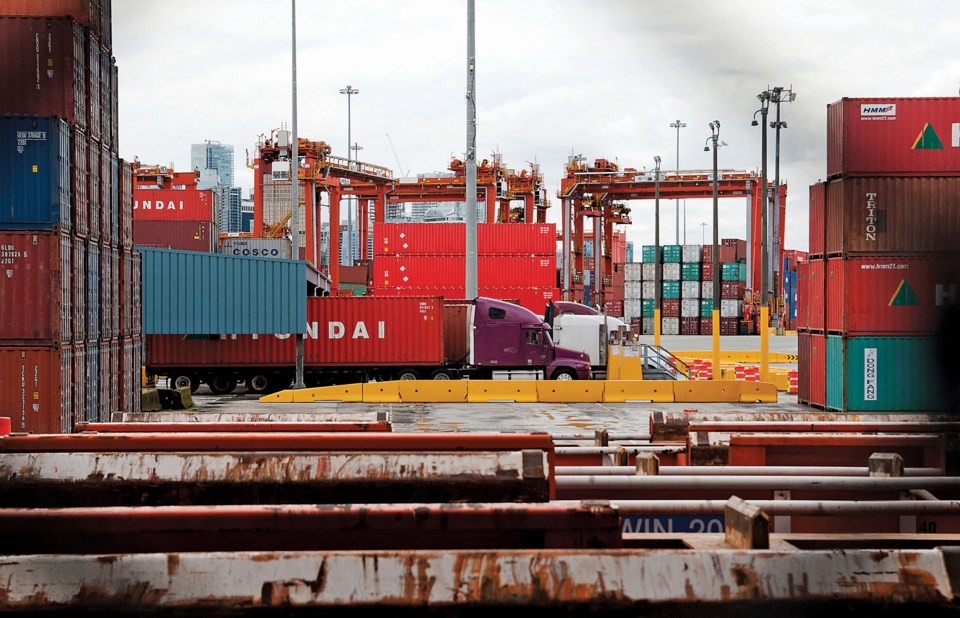Ongoing job action at Canadian National Railway (CN) is “a real concern” for the Port of Vancouver, Canada’s largest port.
“By our calculation, there’s around a $100 million of GDP [gross domestic product] a week that will be lost as a result of this if it continues for a week,” Vancouver Fraser Port Authority president and CEO Robin Silvester told a group of regional business leaders November 19.
“One dollar in three of our nation’s trade beyond North America moves through the Port of Vancouver. CN carries roughly half that trade to and from the port. So the effects of this sort of stoppage will ripple through the economy very quickly. And I really hope that the parties are able to find a resolution very quickly.”
The remarks were made as part of Silvester’s 11th annual address to the Greater Vancouver Board of Trade (GVBOT), in which he discussed successes and challenges related to the port’s efforts to expand trade infrastructure on the West Coast.
One success was securing $300 million in funding commitments from Transport Canada in 2018-2019 for road and rail projects in the region through the National Trade Corridors Fund. At the same time, Silvester took an opportunity to sound the alarm about the consequences of the region’s diminishing supply of industrial land.
“This is the single biggest challenge that keeps us up at night,” he said. “Nobody is thinking about those economic lands in a regional way.”

While acknowledging some progress on the file by the board of Metro Vancouver, Silvester told the audience he is concerned the efforts "may be too little, too late."
One example he cited was a decision by Metro Vancouver’s regional planning committee to re-designate nearly 13 hectares of industrial waterfront property in Port Moody as land for general urban use.
“That site was one of our last opportunities for marine terminal expansion in the region. That decision confirmed that as a region, we do not have the land planning oversight we need to protect our collective economic future,” said Silvester, who added he has become convinced that the province needs to take a leadership role when it comes to the protection and use of industrial lands in Greater Vancouver.
If it doesn't, B.C. risks losing businesses to Calgary, “or worse, moving to Tacoma and Seattle, which is a loss for Canada,” he said.
Aside from missed investment opportunities at the local level, Silvester said a failure to properly manage the region’s industrial land risks undermining Canada’s national infrastructure strategy.
Part of that strategy involves infrastructure expansion on B.C., and the port has argued that its Roberts Bank Terminal 2 project is critical to addressing Canada’s trade capacity constraints.
The project underwent a federal public hearing process earlier this year, and Silvester said he is confident it will receive its federal environmental assessment approval sometime in the new year.
“It’s unbelievably thorough, painfully slow,” he said of the process – comments that received a chuckle from the audience.
“While it’s very frustrating for those of us in business trying to move these large projects forward … it’s critical that we make good decisions.”



